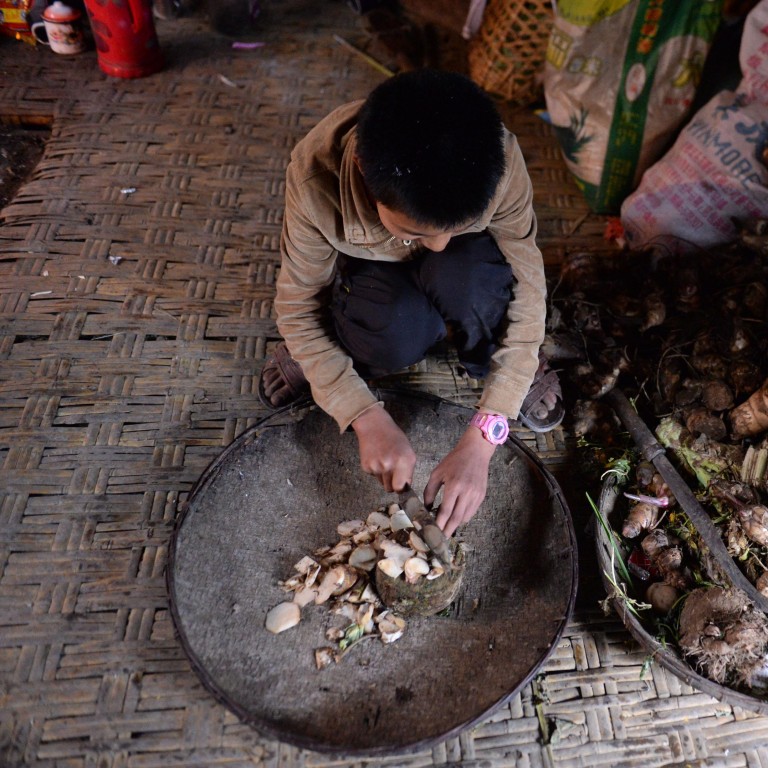
China's plan to beat poverty by 2020 an 'extremely difficult mission'
To reach its goal, the mainland must lift a million people a month from impoverished lives
The mainland faces an enormous challenge in reaching its goal of eradicating poverty by 2020, a cabinet official helping to lead the effort said yesterday.
There were still 70.17 million people living below the mainland's poverty line at the end of last year, most of them in rural areas, according to data compiled by the National Bureau of Statistics. The line is drawn at an annual income of 2,300 yuan (HK$2,800).
To meet its goal of building a moderately prosperous society by 2020, the government must lift all of them out of poverty. This means that close to 12 million people must move above the line every year - about a million people a month.
READ MORE: China's formula to reduce poverty could help developing nations
"The time is very short and the task very heavy and arduous. If there are no special major initiatives, it will be extremely difficult to achieve this mission," said Hong Tianyun, deputy director of the State Council's leading group office of poverty alleviation and development.
Despite rapid economic growth over the past two decades, a lack of jobs in rural areas has driven adults away, leaving children and the elderly behind.
"With economic growth slowing down, government input may decrease and new policies and measures are needed," said Song Hongyuan, director of the Ministry of Agriculture's Research Centre for the Rural Economy.
Over the past 15 years, more than 600 million people have climbed out of poverty. But the pace is slowing. In 2011, 43.3 million people earned enough to move above the poverty line. The figure fell to 16.5 million in 2013 and to 12.3 million last year, according to Xinhua.
Song said the slowing success rate showed the remaining poor were proving the hardest to help. "The easy problems have all been solved, and the remaining poor people are mostly in obscure locations, with no labour force and poor resources. It's only going to get harder," Song said.
Authorities would relocate some people who lived in areas not suitable for habitation, and issue bonds to help raise money to move them, Hong said.
Dang Guoying, a researcher at the Rural Development Institute of the Chinese Academy of Social Sciences, said the government should provide a minimum living allowance instead of solely relying on development and education.

